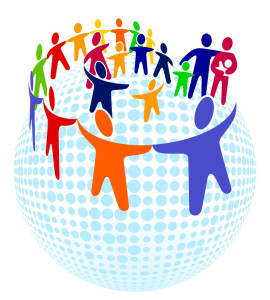I’ve been thinking about aging a lot lately. Birthdays are coming up for my husband and me – neither of us is getting any younger. Friends my age are losing older spouses. Friends my age are dealing with health issues of spouses. And younger friends are dealing with health issues of their elder parents. Extended family members are considering what level of services they may have to arrange in the near future or move into a more age-friendly situation.
issues of spouses. And younger friends are dealing with health issues of their elder parents. Extended family members are considering what level of services they may have to arrange in the near future or move into a more age-friendly situation.
And then there are the uncertainties surrounding Social Security, Medicare and Medicaid facing all of us. Not to mention the stock market.
Last week I wrote about the importance of social connection – especially as we age.
59 million people in the U.S. are 65 or older. Based on personal experience and decades working in healthcare, here is some advice on aging whether it applies to you or a loved one:
-
- Keep active mentally and physically. Maintain social connections with family and friends. Embed yourself in a community to avoid isolation. Develop a new hobby that involves learning something new to avoid stagnation. Make it something you can do for years to come.
- Be your own advocate with your healthcare providers or find a family member to help advocate for you.
- If you have a clinician in the family, listen to them. They can advise and help interpret what might seem like confusing and overwhelming medical information.
- If you have a non-clinician in the family who works in healthcare and knows how to navigate to get access to the right kind of care and specialists, let them help you.
- Plan ahead and talk with your family about your plans. Make a retirement aging plan. Outline the decision points – for example, what would be the trigger that it’s time to move out of your house or apartment and into a care facility or to have services come to you. Maybe it is when you are unable to do stairs, have a significant fall risk, or are unable to do activities of daily living (ADL). Avoid having a reactive approach. Make the necessary changes when you want to and can, not when you are forced to.
- Recognize when it is time to give up the big, too much to maintain, multi-story single family home you raised your family in for something smaller, simpler with single floor living.
- Recognize when you need help and get it. It may mean having services come into your home or moving into a Continuing Care Retirement Community (CCRC) where you can progress from independent living, to assisted living, to memory care if needed, to skilled nursing care.
- If you have family members who can help you with aging members of your family, figure out how everyone can play a role whether they live locally or not.
- If you are a caregiver for a loved one, recognize when you need the help of others or services in your home.
- Lastly, hospice is not just about the final days of life. There are varying levels of hospice care to consider and make use of when the time comes.
As for my husband and me, we moved from a big single-family home into a townhouse neighborhood in a planned community a few years ago. It is a multi-level townhouse with a master bedroom and bath on the first floor. How we use our upper and lower levels today (office space, guest bedroom, art studio, and family room) can change if stairs become difficult at some point. We will still have a guest bedroom for family and friends to visit and a family room for the grandkids to play in.
We have a will and family trust setup. We have advanced directives. We invested in long-term care insurance decades ago. We plan to review all this and our overall financial assets with our daughters in the near future so they are fully aware and don’t have to worry.
Do we have more planning to do? Yes. We will do it together and proactively in the years to come.
Related Post:
Fostering Social Connection for Health and Well-being


